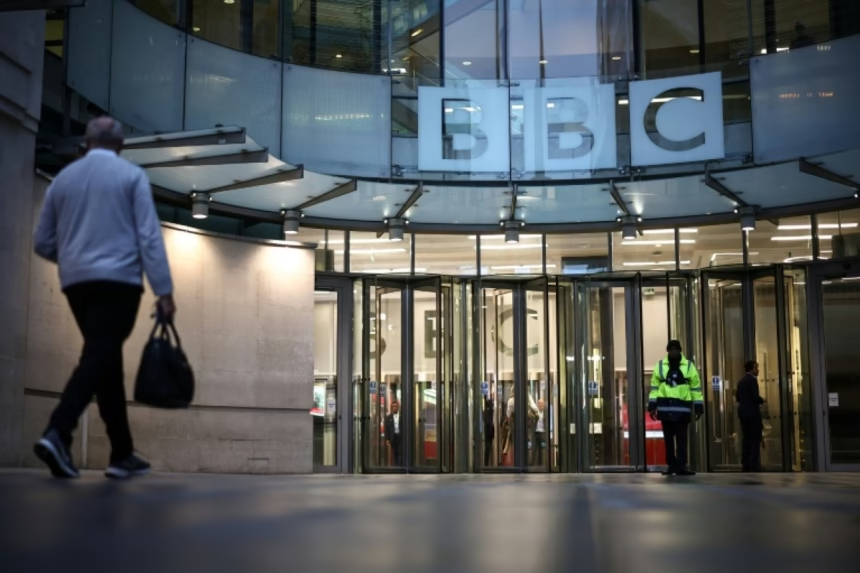WASHINGTON, D.C. — US President Donald J. Trump has escalated his fight with the BBC, which he calls fake news, directing his lawyers to issue a sharp warning to the BBC. They demand a full retraction of a Panorama documentary, a public apology, and compensation for damage to his reputation, or they will file a $1 billion lawsuit.
The dispute centres on a 2024 Panorama episode, “Trump: A Second Chance?”, broadcast a week before the 2024 presidential vote. Trump’s team says the programme spliced lines from his 6 January 2021 speech to create the impression he encouraged violence, while leaving out his calls for peaceful protest. They call it a deliberate edit designed to influence voters and say it cannot go unanswered.
The legal letter, dated 9 November 2025, is addressed to senior BBC figures. It sets out three demands: a full retraction of the programme and any related statements it describes as false or defamatory; a clear apology; and financial redress for alleged reputational and electoral harm. The letter sets a deadline of Friday, 14 November, at 5 p.m. EST.
If unmet, the lawyers say they will seek not less than $1,000,000,000 in damages. The edit is described as intentional and deceptive, framed as an attempt to interfere in the U.S. election by casting Trump as an insurrectionist. The letter closes with a stark warning to the corporation to take heed.
This is not the first media battle for Trump. He has settled with ABC News over a contested rape claim and has pursued CBS over selective edits in an interview with Kamala Harris. Targeting the BBC, a foreign broadcaster long seen as a benchmark for journalism, signals a wider push against international outlets he accuses of bias.
White House Press Secretary Karoline Leavitt labelled the BBC a “100 percent fake news” operation and a “propaganda machine.” On Truth Social, Trump said the BBC leadership were “very dishonest people who tried to step on the scales of a Presidential Election.”
The Edited Speech: From the Ellipse to Accusations of Election Meddling
The row traces back to 6 January 2021. Speaking at the Ellipse, Trump urged supporters to “peacefully and patriotically make your voices heard” while challenging election results. He said, “I know that everyone here will soon be marching over to the Capitol building to peacefully and patriotically make your voices heard.” Later, in a separate part of the speech, he added, “We’re going to walk down to the Capitol… and if you don’t fight like hell, you’re not going to have a country anymore.”
According to critics, Panorama stitched together the “walk down” line with “fight like hell,” removing the peaceful language. The resulting clip suggested a direct incitement to march on the Capitol. The segment aired on 28 October 2024 during a heated campaign and reached a large audience, in a race Trump went on to win.
A leaked memo from BBC insider Michael Prescott intensified the fallout. Prescott, a former Sunday Times political editor and adviser to the BBC editorial standards board, said the edit was “completely misleading.” His dossier, reported by The Daily Telegraph, alleged wider impartiality failures, including BBC Arabic’s use of unverified Hamas casualty figures and claims of sidelined coverage on gender issues that did not fit prevailing views. The memo triggered a wave of criticism, with hundreds of viewer complaints lodged in days.
BBC Chair Samir Shah acknowledged the editing error in a letter to MPs, writing, “We accept that the way the speech was edited did give the impression of a direct call for violent action. The BBC would like to apologise for that error of judgment.” Shah said Trump’s legal demands would be reviewed. With the stated deadline approaching, the next steps remain under scrutiny.
Resignations Hit the Beeb: A BBC Leadership Crisis
The controversy led to senior departures. On Sunday, 9 November, Director-General Tim Davie and News CEO Deborah Turness resigned, citing mistakes and a desire to protect the institution. Davie, who took charge in 2020, told staff he bore ultimate responsibility. Turness said the Trump row had reached a point where it was harming the BBC, which she said she loved.
The resignations capped a difficult week. Prescott’s memo, written after he left the standards role in June, described deep concerns about bias. Culture Secretary Lisa Nandy, no ally of Trump, said she had held numerous conversations with the BBC about standards. Conservative leader Kemi Badenoch called for accountability, and former prime minister Boris Johnson said Davie should clarify or step down.
Inside the BBC, tensions were visible, as Radio 4’s Nick Robinson suggested that board conservatives were driving a purge.
The leadership exit leaves a gap as the BBC negotiates its 2027 charter, which underpins its £3.8 billion licence fee. The debate comes amid claims of rising licence fee resistance and pressure on income.
The BBC’s Reputation: From Model Broadcaster to Accusations of Bias
The BBC built a global reputation over a century, founded in 1922 and long praised for impartial reporting. Its World Service won trust across decades, offering reliable information in times of crisis. Audiences once turned to it for straight facts.
That legacy is contested. Critics argue the corporation now shows consistent bias and makes editorial errors. The Trump edit sits alongside older scandals often raised by detractors, from the handling of the Savile affair to rows over coverage of Gaza and allegations of soft treatment for some political figures. More recent rows include complaints about BBC Arabic output during the Israel-Hamas war and disputes over how gender-related stories were framed.
Accusations come from all sides. Conservatives say the BBC favours a liberal line, citing Brexit coverage and treatment of Boris Johnson. Progressives accuse it of cosying up to the establishment and going soft on Labour controversies. Ofcom’s 2023 review highlighted impartiality as a key concern for audiences. A 2024 survey by The Conversation showed strong partisan splits in trust ratings, with Labour voters more positive than Conservatives or Reform UK supporters.
Public confidence is a live issue. Licence fee prosecutions draw headlines, and some viewers migrate to other platforms like X or GB News. The broadcaster has faced claims of inaccurate or skewed reporting in conflict zones and domestic rows. The Huw Edwards scandal revived painful memories of past failures. While the BBC often still ranks high in UK trust polls, the gap has narrowed in a fragmented media market.
Trump’s threatened lawsuit frames his move as a matter of accountability. His team says the edit was defamatory and interfered with democratic choice, echoing grievances from earlier information wars. With a deadline set, the BBC must decide how to respond. The outcome will shape not only this dispute but also public faith in a major media institution. In an age of edited clips and viral claims, accuracy and context carry real weight.














